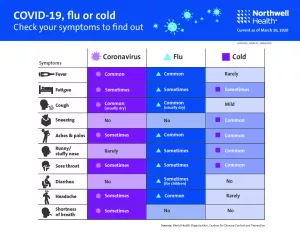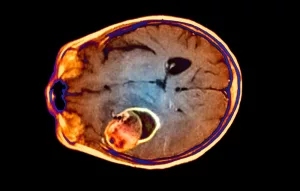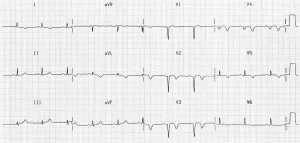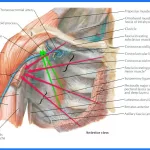Yo there! Did you ever collapse and subsequently got a hip pain that was of a more intense nature and it had not stopped yet? Or you could be currently seated there, stroking your side, and thinking, “Is this merely a bruise, or is there a possibility that my hip is dislocated? I can truly understand and empathize with these feelings of chaos when one is troubled with health issues. But do not worry you are in the right place! Let me show you the easy diagnosis of the dislocation of your hip and the appropriate treatment. Imagine that we both are having a coffee and discussing this issue—I will use clear, easy-to-understand, and you-oriented language.
What’s a Hip Dislocation Anyway?

All right, visualize for a moment that the joint in your hip is similar to a ball and socket; imagine the pocket of a baseball glove that perfectly fits a ball. The ball stands for the top of the thigh bone (the femur, for your information), while the socket is a part of our pelvis. Under those circumstances, the ball and socket fit together without any issues, allowing you to roam, show your cougar moves, or pursue your dog without a glitch. But sometimes, after a big fall or a rough accident, that ball can pop right out of the socket. That’s a hip dislocation, and trust me, it’s not subtle—it hurts like crazy!
A hip dislocation is when that thigh bone gets knocked out of its cozy pelvic home. It’s a tough joint, so it takes some serious force to make this happen, but when it does, you’ll want to know the signs. Let’s break it down.
Why Does It Happen?
Hip dislocations usually come from big, dramatic moments—like a car crash, a nasty fall off a ladder, or a wild sports collision. I once knew a guy, Mike, who dislocated his hip playing rugby. He said it felt like his leg just gave up on him mid-tackle. Poor guy! Other times, it’s not trauma but something like hip dysplasia (where the socket’s too shallow) or even a hiccup after hip replacement surgery. Either way, it’s a wake-up call from your body that something’s seriously off.
How Do I Know If My Hip Is Dislocated?
Alright, here’s where we get to the nitty-gritty—how can you tell if your hip’s dislocated? Spoiler: it’s not sneaky. Your body’s going to scream for attention. Here’s what to look out for:
- Pain that’s next-level intense: We’re talking sharp, deep pain in your hip or groin. Not a “walk it off” kind of ache—this is “I can’t even think straight” territory.
- Leg’s out of commission: Moving it? Nope. Standing on it? Forget it. The pain’s too much, and it feels locked in place.
- It looks weird: Your leg might seem shorter, or it’s twisted inward or outward in a way that’s just not right.
- Numbness or tingles: If nerves get squished, you might feel odd sensations down your leg or in your foot.
Sound familiar? If you’re nodding (or wincing), keep reading. Your hip’s trying to tell you something big.
What Does It Feel Like?
I recently heard someone describe the situation like my friend, Sarah, after she had a skiing accident. People say that it feels like the striking of a pain lightning and then, suddenly, everything stops. You may even hear a pop, as if the joint is sounding, “I’m off then!” Certainly, this is not a good feeling, however, being prepared for such a situation may enable you to save your life.
Can You Walk on It?
Here’s a quick reality check: if your hip’s dislocated, walking’s probably not happening. Most folks can’t even wiggle their toes without agony. If you’re hobbling around, it might be a strain or something else—but if you’re stuck and the pain’s unbearable, dislocation’s a real possibility.
Is It a Dislocation or Something Else?

Now, you might be thinking, “Wait, how do I know it’s not a fracture or just a bad bump?” Totally fair question! Here’s a little cheat sheet to compare:
| Injury | Pain | Can You Move? | Looks Off? |
|---|---|---|---|
| Hip Dislocation | Off the charts | Nope | Yes—leg’s twisted |
| Hip Strain | Annoying but manageable | Sort of | No |
| Hip Fracture | Brutal | Not really | Maybe |
Dislocations stand out with that combo of killer pain and a leg that looks like it’s posing for a weird photo shoot. Still unsure? Don’t guess—let a pro figure it out.
Could It Affect My Knee Too?
Funny thing—hip problems can sometimes mess with your knee. Ever heard of referred pain? It’s like your hip’s playing a prank, sending pain signals down the line. So, if your knee’s aching alongside hip trouble, it might all tie back to that joint. Wondering what doctor for knee pain? An orthopedic specialist can sort out both hip and knee mysteries.
➤ Curious about knee pain after knee replacement surgery? Check out Why Does Pain Occur Behind the Knee After Total Knee Replacement?.
When Should I Get Help?
Here’s the deal: if you suspect your hip’s dislocated, don’t wait. Seriously, don’t. This isn’t a “let’s see if it gets better” situation—it’s a medical emergency. Waiting could mess with nerves or blood flow, and that’s a whole new level of trouble you don’t want.
What to do:
- Stay put: Don’t try to move it or fix it yourself. No heroics here!
- Call for backup: Dial 911 or get someone to rush you to the ER.
- Keep calm: I know it’s tough, but staying still helps until help arrives.
Trust me, your future self will thank you for acting fast.
How Do Doctors Check It Out?

Right at the point of getting to the hospital, where you are not calling the shots anymore, and the health professionals take control, and trust me, they are really good at it. They will question you about the events (e.g., “Did you fall off your bike or get tackled?” like that) and check the area of the body topically. Next, it is probable that they will go even further and take an X-ray or CT scan so as to look into it. They are very similar to police technicians discovering the truth behind the crime. These scans will give precise information on the location of the fracture or dislocation, if any.
It might sound intimidating, but they’ve got your back. You’re in safe hands.
What’s the Fix?
So, your hip’s dislocated—now what? The goal is to get that ball back where it belongs. Here’s how it might go down:
The Nonsurgical Way
Most times, doctors can do a “closed reduction.” That’s a fancy way of saying they’ll gently (well, as gently as possible) maneuver your hip back into place. They’ll give you meds or anesthesia to take the edge off—nobody wants you gritting your teeth through that! Once it’s back, they’ll check with another X-ray to make sure it’s sitting pretty.
When Surgery Steps In
If there’s a fracture or something tricky going on, surgery might be the ticket. The surgeon will realign everything and patch up any damage. It’s rare, but if you need it, it’s the best way to heal right.
Aftercare Vibes
Post-fix, you’re not running marathons yet. You might get a brace or crutches to keep weight off, plus some pain relief tricks like ice or meds. Physical therapy’s next—it’s your golden ticket to getting strong again.
Getting Back to You: Recovery Time
Healing’s a journey, not a sprint. After a hip dislocation, you’re looking at a couple of months to feel like yourself. Here’s the scoop:
How Long Are We Talking?
Plan on 2-3 months, give or take. The first few weeks are all about rest—crutches or a walker will be your new BFFs. Then, you’ll ease into physical therapy to rebuild what you’ve lost. It’s slow, but steady wins this race.
Therapy Moves
Your therapist will hook you up with exercises like:
- Easy stretches to loosen things up
- Muscle-strengthening moves for your hip crew
- Balance drills to keep you steady
It’s like rehab boot camp, but for your hip—and you’ll feel prouder with every step.
Back to Life
Eager to ditch the crutches? Your doc will green-light you when it’s safe—could be weeks for basic stuff, longer for sports. Listen to them; rushing could land you back at square one.
How to Keep It from Happening Again

Been there, done that? Let’s make sure it’s a one-time thing. Here’s how to protect your hips:
Dodge the Drama
- Buckle up: Seatbelts are hip-savers in cars.
- Gear up: Sports pads or braces can cushion the blow.
- Watch your step: Ice, wet floors—steer clear of slip zones.
If You’ve Had Hip Surgery
Had a hip replacement? Be extra kind to it:
- Skip the deep bends or leg-crossing for a while.
- Use helpers like grab bars to stay steady.
- Slow and steady—don’t rush those moves.
Your hips are champs—treat ‘em that way!
Wrapping It Up
So, there you go—your crash course on hip dislocations! If you’ve got that intense pain, can’t move, or your leg’s looking funky after a fall, don’t mess around—get to a doctor fast. It might not be a dislocation (could be a fracture or even something wild like a patellar tendon tear surgery situation), but either way, you deserve answers.
I hope this chat’s eased your mind a bit. Got a story about a tumble you’ve taken? Drop it below—I’d love to hear! And if you’re ever worried, lean on the pros—your hips are worth it. Stay safe out there, friend!

























Leave a Reply
You must be logged in to post a comment.